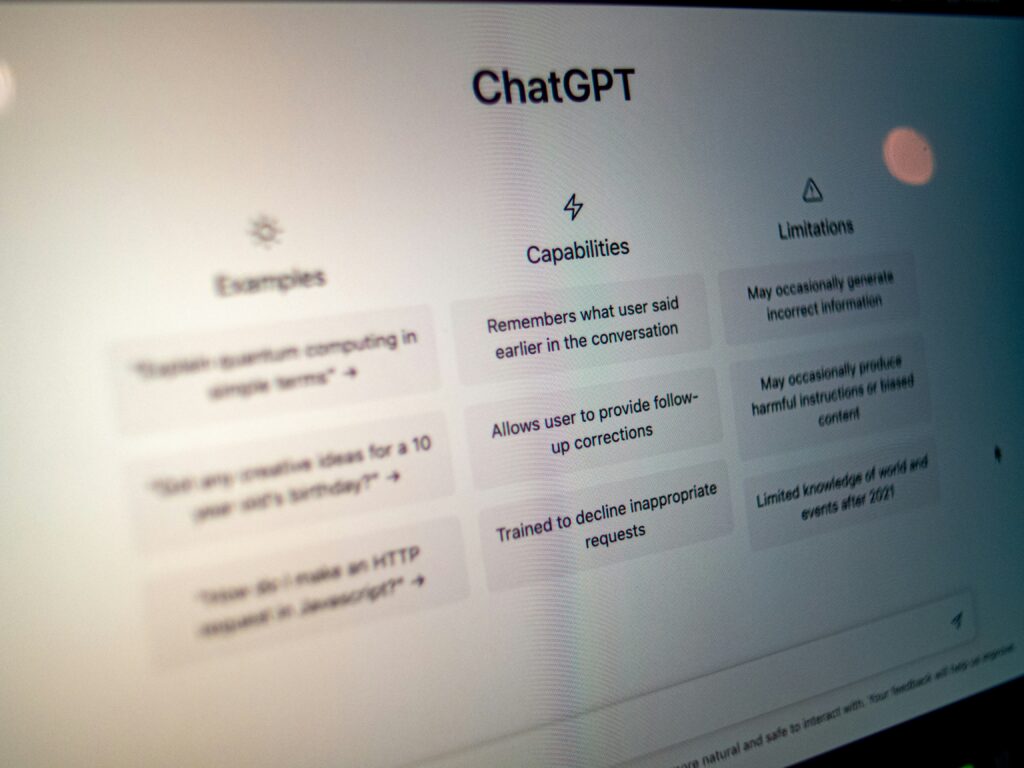Is using AI plagiarism? MPA Online professor breaks down generative AI in education

With the current state of developing technologies, students and faculty alike are trying to determine if they should use artificial intelligence (AI), how to properly integrate it, and how to cite ChatGPT and other AI tools in academic writing. In a recent webinar, Dr. Dora Kingsley Vertenten, faculty director for the Master of Public Administration Online, delved into the transformative potential of generative AI in education. The Generative AI and Academic Integrity webinar explored how these advanced tools can be integrated into pedagogy while maintaining the core principles of academic honesty and intellectual property.
Dr. Dora Kingsley Vertenten is a seasoned professor with extensive experience in public administration and digital literacy. With a career spanning over two decades at USC, she has been at the forefront of integrating digital tools into educational practices. Her focus on participatory democracy and digital literacy provide a rich backdrop in her discussion of AI in education.
The rapid evolution of AI in education
AI tools are rapidly developing in the education space, and there are major implications taking place in the classroom. Dr. Vertenten highlighted several key AI homework tools, including ChatGPT, Grammarly, and TurnItIn detect, which have become common in modern educational practices. These tools are not only enhancing the way students and educators approach research and teamwork, but are also reshaping the landscape of academic integrity. AI can be used to create mind maps, operational tools, and other educational resources.
Dr. Vertenten also highlights Litco and Research Rabbit, the tools being implemented for data visualization assignments in the MPA Online program. Staying ahead of digital tools is essential to ensure that students are well-prepared for the evolving job market, in government and beyond.
Is using AI plagiarism and can universities detect ChatGPT?
With the rise of AI generated content, traditional notions of plagiarism and academic dishonesty are being challenged. Dr. Vertenten introduced the concept of a “post-plagiarism world,” where the focus shifts from merely detection tools like TurnItIn and other plagiarism checkers to understanding and managing the ethical use of AI tools. Ultimately, AI is developing at such a rate that its role in the classroom must be integrated rather than penalized.
How to cite ChatGPT: strategies for the new era
To navigate this new landscape, Dr. Vertenten proposed several teaching strategies aimed at fostering a deeper understanding of academic integrity in the context of AI. Dr. Vertenten says “we should be teaching a focus on: what is intellectual property and why does that matter?” By helping students recognize the value of their own ideas and the legal frameworks that protect them, educators can instill a sense of ownership and responsibility of their work and ideas.
Another crucial strategy is to encourage students to verify AI-generated content. Dr. Vertenten highlighted the need for students to critically assess the information produced by AI tools and understand their limitations. The MPA Online curriculum includes “Augmented Assignments” that focus on teaching students the correct use of AI use and research. This approach not only helps maintain academic integrity but also equips students with essential skills for the digital age and workforce beyond graduate school. Furthermore, Dr. Vertenten emphasized the importance of learning how to cite AI and implementing that into class expectations.
Practical applications in the classroom
There are many practical uses of AI in the classroom, including assignments that leverage data visualization and research capabilities. In the MPA program online, forms were introduced to guide students in verifying and documenting their use of AI tools for more complicated assignments. These forms serve as a valuable resource for both students and educators, ensuring that the use of AI is transparent and accountable by allowing students to document their research process.
Implications of AI in education
Staying updated and open to the adoption of new AI technologies is not optional, it is essential. Dr. Vertenten anticipates that more advanced AI tools will continue to emerge, requiring educators to continuously adapt their teaching methods. The ethical considerations surrounding the use of AI will also become increasingly important, necessitating ongoing discussions and agile policy updates. Dr. Vertenten emphasizes that faculty should clarify the expectations around a students’ use of AI by reiterating the importance of intellectual property ownership rights in the syllabi. These rights already disallow for the distribution of course materials at USC.
The goal of integrating AI into education is not just to enhance efficiency but to equip students with the skills to verify and critically assess the information they encounter. This approach ensures that students are not only proficient in using AI tools, but also understand the ethical implications of their use.
Future of AI in the classroom
Dr. Vertenten states, “new AI tools are changing the way we both behave and the time it takes to research, cite, etc.” emphasizing the importance of keeping on the pulse of new technologies. Ultimately, faculty must embrace the potential of generative AI in education while maintaining a strong commitment to academic integrity and intellectual property. Dr. Vertenten urged faculty to adapt their teaching methods to incorporate AI tools and to focus on teaching students about intellectual property and verification processes.
The integration of generative AI in education presents both opportunities and challenges. By adopting innovative teaching strategies and fostering a deeper understanding of academic integrity, educators can prepare students for a future where AI plays a central role in their academic and professional lives. Dr. Vertenten’s insights provide a valuable roadmap for navigating this new era of education, ensuring that the use of AI enhances learning while upholding the principles of honesty and responsibility.
Watch the webinar and learn more from Dr. Vertenten.
Learn more about the Master of Public Administration Online today.